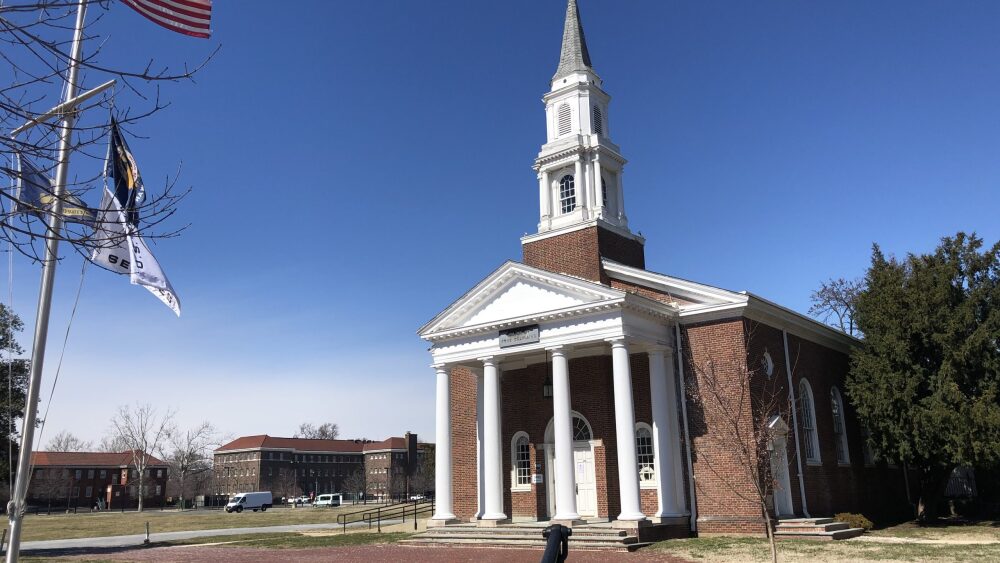The following article was published in the South Florida Sun-Sentinel on April 18, 2022.
In 1943, a German submarine torpedoed the USS Dorchester, a vessel filled with American soldiers headed to Europe during World War II. As it sank, four chaplains — two Protestants, a Catholic and a Jew — handed out life jackets to the frightened troops.
When there were no more life jackets left to distribute, the four chaplains handed theirs to four young soldiers, consigning themselves to certain death in the frigid waters of the Atlantic.
In his 2011 book “Tri-Faith America: How Catholics and Jews Held Postwar America to its Protestant Promise,” Kevin M. Schultz describes the scene: “Survivors of the wreck saw the four chaplains praying arm in arm as the ship began its descent to the bottom of the sea. Alexander Goode, a young, bespectacled Brooklyn-born rabbi, was reciting the Sh’ma — the affirmation of the unity of God — just as the waters engulfed the ship forever.”
This sacrificial act, recounted by the soldiers who survived, became a symbol of America’s pluralistic civil society. Schultz reports that Warner Brothers began production on a movie titled “Four Men of God” and that “a depiction of the Four Chaplains, thereafter always honored with capitalization, became a United States postage stamp.” Their sacrifice was also memorialized with the construction of the Chapel of Four Chaplains in Philadelphia.
At its best, the United States has been able to maintain a civil society where people of different faiths can live together in relative peace. The impact of religion on the life of the republic has not always been benign, however.
One of the biggest challenges to peaceable interfaith relations in the early 20th century was the popularity of the Ku Klux Klan, whose white Protestant leaders appealed to the Bible to justify their white Protestant nativism.
In 1927, Protestants, embarrassed by the bigotry of their co-religionists, reached out to Jews and Catholics to establish the National Conference of Christians and Jews to counter white Protestant nativism. Four decades later, Martin Luther King, Jr. called the bluff of tri-faith America by asking, in effect, if the values of tolerance and equality enunciated by the architects of tri-faith America in response to religious bigotry applied to race relations as well. The upshot is that the abuse of religious power, authority and identity is subjected to intense challenge in the U.S.
It happens all the time. H.L. Mencken muckraked fundamentalists during the Scopes Monkey Trial in 1925. Decades later, journalists covered the Catholic priest abuse scandal. Documentaries about religious groups that oppress their followers and deprive non-believers of their rights are commonplace.
While these and other communities sometimes level charges of bigotry at their critics, no one takes these accusations seriously. Religious faith and practice are subject to intense scrutiny in the U.S.
That’s just how it is.
This phenomenon is manifesting itself in response to Islamism in the U.S. with reform-minded Muslims taking the lead. The Muslim Reform Movement, for example, promotes a “respectful, merciful and inclusive interpretation of Islam” and affirms the Universal Declaration of Human Rights. The organization rejects “interpretations of Islam that call for any violence, social injustice and politicized Islam.”
The fate of interfaith relations in the U.S. and in the West in general, is contingent on the success of groups such as this.
Just as KKK members invoked the Bible to justify their supremacism and enjoyed support from many local churches in the U.S., Islamists invoke passages from the Koran and Hadith to justify supremacism and enjoy support from mosques throughout the country.
Sadly, elites are working at cross purposes with efforts to promote peace and tranquility in multifaith America. The Biden administration recently accorded diplomatic credentials to Masood Khan, the ambassador from Pakistan who has a long history of affirming Islamist hostility toward Hindus in South Asia. This will increase tensions between Muslim and Hindu communities in America.
Nevertheless, there is reason to be hopeful. Reform-minded Muslims are challenging Islamist leaders who have falsely portrayed themselves as representatives of the entire Muslim community in the West.
In 1959, Will Herberg wrote a book titled “Protestant, Catholic, Jew,” detailing how adherents of these three traditions were able to establish a way of life among their communities in the U.S. that allowed them to coexist peacefully. Hopefully, at some point in the not-too-distant future, a scholar will have reason to update Herberg’s text.
Multifaith America: Protestant, Catholic, Jew, Muslim, Hindu, Buddhist has a nice ring to it.
We’ve got a long way to go.
Confronting the Islamist threat in the West is part of the process of getting there.


